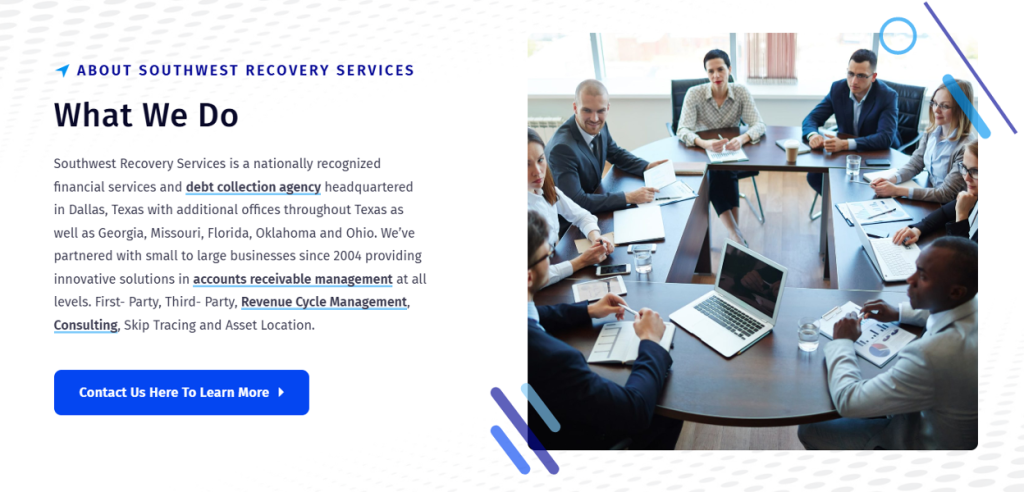- Customer Service 866-837-3065 Make A Payment (866) 558-3328
- Client Portal
- Consumer Support

You’ve provided services, delivered products, and sent a professional invoice, but instead of payment, you receive a dispute. The client questions the amount, claims incomplete delivery, or contests the terms entirely. Your revenue remains tied up, and you’re left wondering if you can move forward with collections when the debt itself is contested.
Payment disputes create a complex situation for B2B companies. You need to recover legitimate receivables, but you also must respect valid concerns and maintain business relationships. The question isn’t whether disputed debts can be sent to collections—they can—but how to navigate the dispute resolution process professionally and effectively.
Understanding the legal framework, documentation requirements, and strategic approaches to disputed debt collection protects your revenue while demonstrating the professionalism that preserves client relationships.
|
Southwest Recovery Services: Get Your Money Back 20+ Years Experience | Texas-Based | Contingency Only – You Pay When We Collect
Built for Commercial Collections:
The Southwest Recovery Difference: ✓ Contingency only – no upfront costs ✓ Veteran collectors with respectful omnichannel outreach ✓ Priority sectors: trucking, logistics, contractors, oil & gas ✓ Clear reporting on account status and outcomes Trust & Results You Need: Nationally recognized ethical collections agency with 12 offices across six states. Compliance-first approach with no threats or guarantees. |
Understanding Disputed Debts in B2B Collections
A disputed debt occurs when the debtor questions the validity, amount, or terms of an outstanding invoice. In commercial transactions, disputes arise for various reasons such as billing errors or discrepancies in the invoiced amount, disagreements about product quality or service delivery, confusion over payment terms or due dates, claims of incomplete or damaged deliveries, and contractual interpretation differences.
For B2B transactions, the legal process differs significantly from consumer debt. The Fair Debt Collection Practices Act (FDCPA) primarily protects individual consumers, not commercial entities. Business debt collection is instead governed by contract law, the Uniform Commercial Code (UCC), and state-specific commercial regulations.
This distinction means commercial collection agencies have more flexibility in their communication and collection methods. However, professional agencies must still operate ethically, respecting legitimate disputes and following proper verification procedures before pursuing collection.

Disputed debts can absolutely be sent to collections. However, responsible collection agencies immediately investigate any dispute before proceeding with active recovery efforts.
When you place a disputed account with a collection agency, the agency becomes obligated to validate the debt. This validation process requires the agency to review all documentation, verify the accuracy of the claimed amount, confirm delivery or service completion, and examine any dispute correspondence.
Professional B2B collection agencies pause aggressive collection activities during dispute investigation. This approach respects the possibility of legitimate concerns while protecting your business from liability. Once validation is complete, the agency can proceed with appropriate collection methods based on its findings.
For businesses considering sending a disputed debt to collections, timing matters. Addressing disputes early through direct communication often resolves issues faster than waiting until accounts age significantly. However, when internal dispute resolution efforts reach an impasse after 60–90 days, professional collection services provide a valuable third-party perspective and expertise.
When a collection agency receives a disputed account, it follows a structured investigation process designed to determine legitimacy and identify resolution paths.
The agency begins by conducting a thorough document review. They examine original contracts or purchase orders, analyze itemized invoices and statements, review delivery confirmations or service completion records, and study all previous communication between parties. This comprehensive review establishes the factual foundation for the debt.
Next, the agency contacts both parties to understand the specific nature of the dispute. They speak with the creditor to clarify expectations and gather additional documentation. They also reach out to the debtor to understand their concerns and evaluate their position. This bilateral communication often reveals misunderstandings that can be quickly resolved.
Based on their investigation, the agency determines whether the dispute has merit. If the dispute proves valid, such as documented non-delivery or legitimate billing errors, the agency returns the account to the creditor with recommendations for resolution. If the dispute lacks supporting documentation, the agency proceeds with standard collection procedures while maintaining professional communication.
Throughout this process, experienced agencies like Southwest Recovery Services (SWRS) maintain detailed records of all findings, communications, and decisions, ensuring transparency for all parties.

Amount discrepancies is one of the most frequent dispute categories. These occur when invoiced amounts don’t match purchase orders, when unapproved additional charges appear, or when pricing differs from quoted rates. Clear contracts with itemized pricing prevent many amount disputes.
Quality and delivery disputes arise when products don’t meet specifications, when services fail to achieve agreed outcomes, when deliveries arrive incomplete or damaged, or when work remains unfinished despite invoicing. Documentation of specifications, quality standards, and delivery conditions protects both parties in these situations.
Contractual interpretation disputes involve disagreements about payment timing, confusion over included services or products, different understandings of warranty terms, or disputes about change order approvals. These disputes highlight the importance of written agreements with explicit terms.
Administrative disputes, while simpler, still delay payment. These include lost or never-received invoices, payments applied to incorrect accounts, invoices sent to the wrong departments or contacts, and missing purchase order numbers on invoices. Systematic invoicing processes minimize administrative disputes.

Businesses can significantly reduce disputes and improve resolution success by implementing preventive measures and strategic responses.
Establish clear documentation from the beginning. Every transaction should include written contracts specifying all terms, detailed invoices with itemized charges, proof of delivery or service completion, and documented communication about changes or issues. This documentation becomes your primary defense when disputes arise.
Address disputes immediately when they surface. Quick response demonstrates good faith and often prevents minor disagreements from escalating into collection situations. Listen to the customer’s concerns, review your documentation objectively, and seek mutually acceptable solutions when possible.
Maintain professionalism throughout the dispute process. Even when you’re confident in your position, respectful communication preserves the possibility of future business relationships. Aggressive or dismissive responses typically harden positions and reduce resolution likelihood.
When internal resolution efforts fail after reasonable attempts, engage professional collection services. A reputable B2B collection agency serves as a neutral third party, separating the financial dispute from ongoing operations. Their experience in dispute resolution often achieves breakthroughs where direct negotiations have stalled.
The decision to place a disputed account with a collection agency requires balancing several factors. Consider professional services when disputes remain unresolved after 60–90 days of good-faith negotiation. Extended disputes tie up working capital and divert internal resources from productive activities. Collection agencies specialize in breaking through communication impasses and negotiating resolutions.
Professional agencies are especially valuable when disputes involve significant amounts where recovery justifies professional fees. They also add expertise in cases that require complex contract interpretation, when debtors become non-responsive or evasive, or when there are signs of bad-faith dispute tactics.
Southwest Recovery Services applies over 20 years of specialization in commercial debt recovery to even the most complex dispute situations. Our veteran collectors understand that disputed accounts require investigation and diplomatic resolution rather than aggressive tactics.

Our proprietary AI-guided tracking system maintains complete documentation throughout the dispute resolution process. Every communication, every document reviewed, and every finding is recorded and accessible. This comprehensive record-keeping protects our clients while ensuring fair treatment for all parties.
We operate exclusively on a contingency basis, meaning businesses face zero upfront costs regardless of dispute complexity. You only pay when we successfully recover funds, perfectly aligning our interests with yours. This model makes professional dispute resolution accessible for accounts of all sizes.
Our multi-channel communication approach adapts to each unique situation. We combine strategic phone discussions, professional email correspondence, formal documentation review, and SMS follow-up to maintain consistent progress toward resolution. This compliance-first methodology across our 12 offices delivers results while protecting your business reputation.
Collection agencies can accept disputed debts, but they must pause active collection efforts until they verify the debt’s legitimacy. Professional agencies investigate the dispute by reviewing contracts, invoices, delivery records, and communication history.
If the debt proves valid after investigation, the agency can proceed with standard collection procedures.
Provide comprehensive documentation, including all original contracts or purchase orders, itemized invoices showing charges, proof of delivery or service completion, records of all payment reminders and conversations, and complete dispute correspondence from the debtor.
The more thorough your documentation, the faster the agency can investigate and resolve the dispute.
Dispute investigation typically extends collection timelines by 30–60 days, depending on complexity and documentation availability. However, professional agencies work efficiently to verify information and reach a resolution.
While this investigation period delays active collection, it protects your business from liability and often results in stronger collection positions once the dispute is resolved.
Not necessarily. Professional B2B collection agencies understand relationship preservation and use diplomatic approaches focused on resolution rather than confrontation.
The agency acts as a neutral third party, often reducing tension between businesses. Many collection agencies successfully recover disputed debts while maintaining the possibility of future business
Southwest Recovery Services specializes in commercial dispute resolution with over two decades of experience across trucking, logistics, oil and gas, property management, and contractor services.
We investigate every dispute thoroughly before proceeding, use diplomatic communication strategies that preserve relationships, maintain comprehensive documentation throughout the process, and operate on a contingency basis with no upfront costs. Our founder’s daily involvement ensures consistent, professional handling of even the most challenging disputed accounts.
*Note: Recovery rates mentioned are for general reference only and not guaranteed. Actual results vary by account and industry. Contact Southwest Recovery Services for a customized quote.


We make it fast and easy to refer past due and delinquent accounts to our professional recovery agents. You decide the range on what you will accept on each case, and you ONLY pay a percentage of what we actually collect to resolve the case. Ready to get started, or want to learn more? Fill out this form and a dedicate account manager will call you to get started.